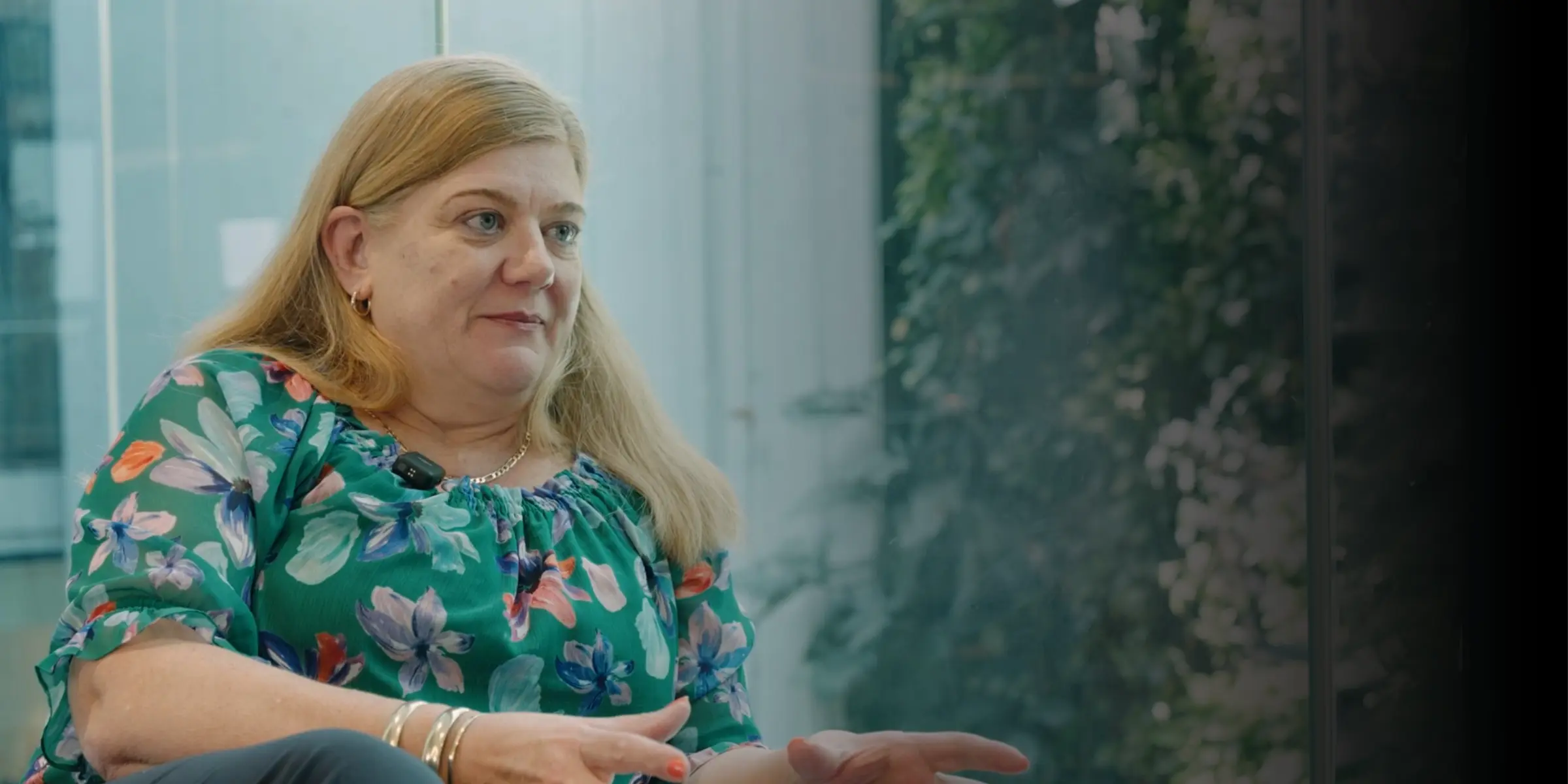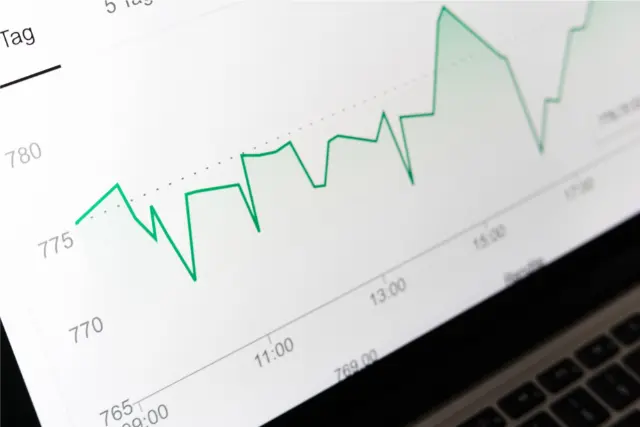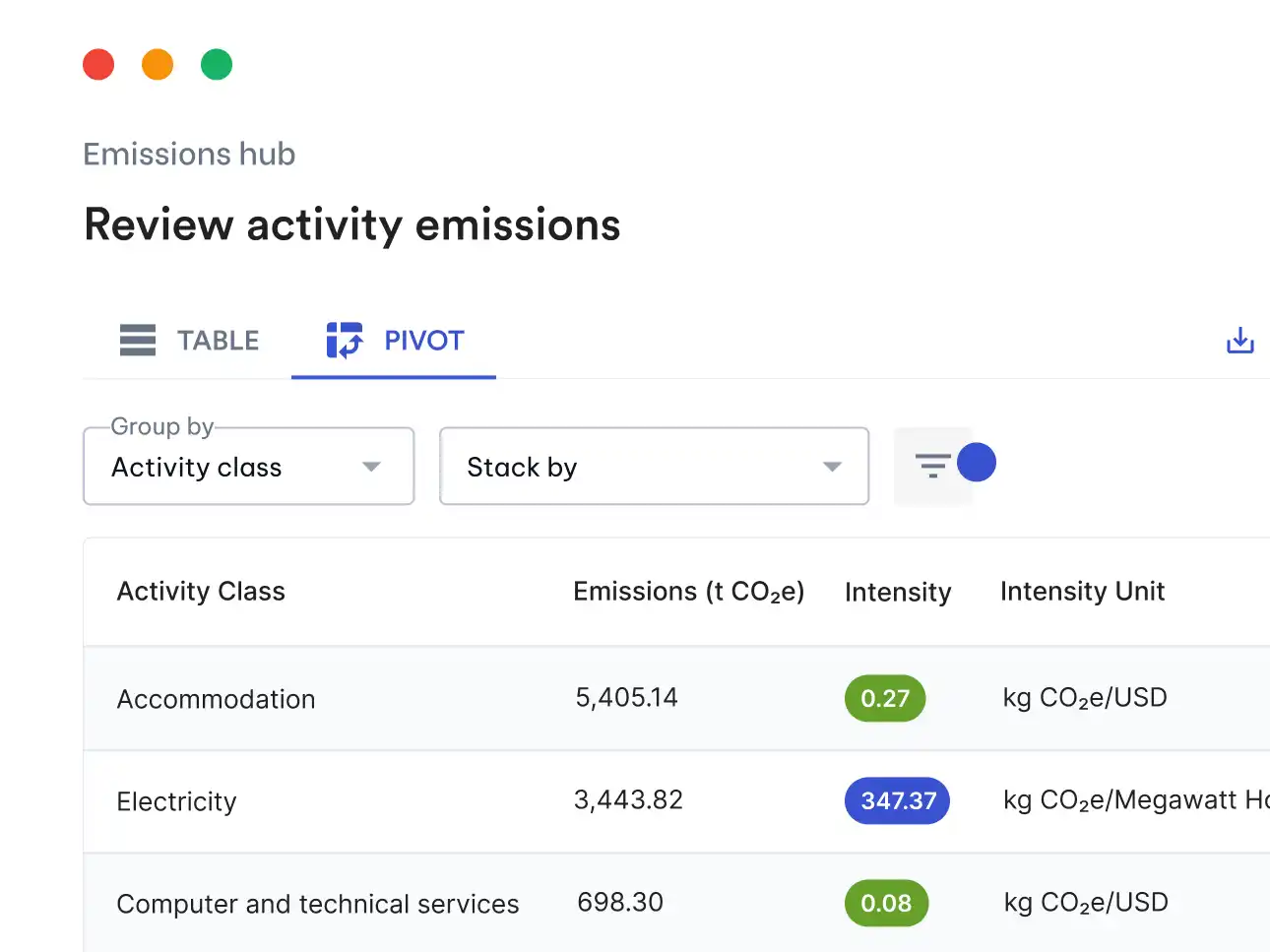As part of our Carbon Accounting Expert Series, we’re thrilled to bring you a conversation with Aletta Boshoff, Partner & National Leader of IFRS & Corporate Reporting at BDO in Australia. In this interview, Aletta shares her expertise on the challenges businesses face as they prepare for mandatory sustainability reporting, including navigating new regulations, ensuring data accuracy, and aligning carbon accounting with financial reporting. She also offers practical advice on avoiding common pitfalls and highlights the importance of technology in streamlining these complex processes. Alongside the transcript, we’ve embedded the full video interview for a closer look at how BDO is helping clients build robust decarbonization strategies.
Below is the transcription of a conversation between Aletta Boshoff and Misha Cajic, recorded in Melbourne on October 9, 2024.
Misha: I appreciate you taking the time to sit down and have a chat with me. I'm really keen to understand and have you share a little more about what BDO is doing, particularly with all of the exciting announcements that have happened within carbon accounting. And yeah, just try and understand a little more about how you're going to be helping your clients with getting up to speed with the regulation.
Aletta: Yeah, no, thank you for the opportunity, Misha. It's always nice to speak to you. It's always nice to exchange ideas on how we can help clients. So no, thank you.
Misha: Yeah, awesome. I'd love to start off by just hearing a little more about what are the top challenges after the recent announcements your clients are coming to you with and wanting your advice on?
Aletta: So I would say our clients are currently coming to us and saying, “we've got mandatory climate reporting or mandatory sustainability reporting in annual reports coming. We've got legislation since September. We’ve got AASB S1 voluntary and AASB S2. We know there's a roadmap for phasing assurance over this information.”
So, there's a real focus on that mandatory sustainability report in the annual report. So, a real focus on, let's say, AASB S2 or IFRS S2 and the fact that it's mandated by legislation and it's all in play now. So, we're not talking about it anymore. It's a thing. So, now they're coming to us and I would say the number one question is, “can you tell us in simple terms, what do we do next? So can you give us a very simple roadmap?”
People are rushing to collect data, rushing to technology before they've really considered what is the appropriate methodology, carbon accounting policy, basis of preparation, whatever you want to call it.
I think that's the question we get asked most often. So where do we start? How do we roll it out over the next 18 months or two or three years until we have to do mandatory reporting? What does that look like? So that's question one.
Maybe another question is, tell us exactly what we have to do. So AASB S2, what does it mean? You have to do things around governance. You have to do things around strategy. You have to do climate risk assessments. You have to do scenario analysis. You have to do financial modeling. You have to measure your carbon footprint.
And then the third question is, who should do it? Is it the finance team? Is it sustainability people? Is it the CFO? Is it the audit and risk committee? Is it the board? Who's responsible for this? And there's a bit of a discussion between, is it the sustainability team? Is it the finance team? Is it the risk team? Who's responsible? I would say those would be the three questions.
Misha: And so zooming in on that actually the fact that there's so much scrutiny on the data and processes now there seems to be a lot of pitfalls that the people that are developing these reports could fall into.
What are the top things that the CFO and the sustainability team need to look out for in particular with carbon accounting. What are the different pitfalls that they need to watch out for so that they don't end up in trouble when they put their report out.
It's important to look for a technology that's not a black box. So a technology that has the ability to input data, and what you get back is a clear indication of what database has been used to come up with an appropriate emissions factor. So, what database and what factor and how the data – the activity data and the factor – has been multiplied and added up to get to an actual carbon footprint or a carbon dioxide equivalent. Unless we've got that visibility within that technology, how are we going to audit this?
Aletta: So for me it's really simple. On carbon accounting, the number one thing is many entities have rushed to data collection and have rushed to technology and think that's the magic bullet.
My advice would be to stand back and say let's think about our boundary setting policy. Let's make sure we know what is in scope and what is outside scope of this measurement. Let's make sure we understand exactly what is Scope 1, Scope 2, and Scope 3. Because depending on which scope it is, which links to the boundary as well, it has different implications. So let's get that boundary setting and the basis of preparation or the carbon accounting policy. Let's get all of that locked in, agreed, comfortable, and then we can think about what data we need to comply with this basis of preparation, with this boundary document. I think people are rushing to collect data, rushing to technology before they've really considered what is the appropriate methodology, carbon accounting policy, basis of preparation, whatever you want to call it.
In the work we're doing, there’s a big issue around completeness of data, and I think a lot of the carbon data that's been used for carbon calculations, it's not linked back and reconciled to the general ledger. If I have a general ledger as the one source of truth, which leads to the preparation of financial statements, if that general ledger can also support the data I use for carbon accounting purposes that’s a win. From an assurance perspective, if an auditor looks at that general ledger and audits or reviews the general ledger in order to audit the financial statements, and the carbon data can be reconciled to that same general ledger again, that's a win.
When they look at technology – and as I say they rush to technology – when they look at technology, I think it's important to look for a technology that's not a black box. So a technology that has the ability to input data, and what you get back is a clear indication of what database has been used to come up with an appropriate emissions factor. So, what database and what factor and how the data – the activity data and the factor – has been multiplied and added up to get to an actual carbon footprint or a carbon dioxide equivalent. Unless we've got that visibility within that technology, how are we going to audit this? Right, so I think it' s important not to have a black box.
Misha: Before we started shooting we were talking a little bit about how the BDO sustainability team has grown over the last year. So what has made people on your team excited to work on the problem?
Technology is going to be critical, because it will help us to be efficient. And we want to help as many clients as possible. I want it to be an efficient process for clients as well. Clients have a lot to do. Many clients have staff shortages. We know there's a lot of shortages around finance teams who are looking at carbon accounting. So technology will be the thing to make this efficient for clients, and efficient for our team, so we can help more clients.
So, I think efficiency is a big thing, but I also think effectiveness. It will increase effectiveness because maybe initially we look at spend-based methods under the greenhouse gas protocol, but over time, I'm envisioning us reaching out to our value chain, reaching out to suppliers, reaching out to customers, and if technology can assist us in reaching out to customers and suppliers, again, in an effective, efficient way, that would be amazing too.
Aletta: I think that the team is excited to help clients. And I think because we've got the mandatory legislation coming in, our clients are really eager to get going. They're looking for people who can help them in a very clear, constructive, simple way. I think the roadmaps that we've put together for Group 1, Group 2, Group 3 entities have really been beneficial. We've upskilled the team and we've recruited people that focus on all the building blocks in those roadmaps.
I've been looking at IFRS accounting standards for more than 30 years. What a wonderful opportunity to take that skill set and apply it to something similar. Sustainability is not completely different. It's similar, but there's transferable skills. So for me, it's a new challenge, something different, not same old, same old. It’s wonderful to be part of sustainability in general.
Misha: Okay. So, how do you envisage technology assisting your team and your clients in the ongoing journey that they're going to have to go through?
Aletta: Misha, I think technology is going to be critical, because it will help us to be efficient. And we want to help as many clients as possible. I want it to be an efficient process for clients as well. Clients have a lot to do. Many clients have staff shortages. We know there's a lot of shortages around finance teams who are looking at carbon accounting. So technology will be the thing to make this efficient for clients, and efficient for our team, so we can help more clients.
So, I think efficiency is a big thing, but I also think effectiveness. It will increase effectiveness because maybe initially we look at spend-based methods under the greenhouse gas protocol, but over time, I'm envisioning us reaching out to our value chain, reaching out to suppliers, reaching out to customers, and if technology can assist us in reaching out to customers and suppliers, again, in an effective, efficient way, that would be amazing too.
Misha: Yeah, absolutely. We have the same experiences when we're working with clients like ours. Having them get into the weeds and solve problems together is always the best way to learn about the issues that we're going to face.
Aletta: Yeah. And I think what’s important is, if I work with a particular client or my team with a client, we identify a problem and we do research and we solve the problem. How do we share that experience with everybody in BDO in Australia and globally? And how do we learn from others? Because they identify different problems, they solve different problems. But if they share it with us, we already have the problem or the solution at hand. So I think that connectivity within BDO is really important. And we pride ourselves on that connectivity.
Misha: It sounds like you've got really good systems in place to make sure that knowledge is shared across the organization.
Aletta: I think it can always be better, but we're trying our best.
Misha: Amazing. Well, thank you for your time. It was great to sit down with you today and I’m very excited to see what BDO gets done in this space.
Aletta: Thank you, Misha. Thank you for the opportunity.
Connect with us on LinkedIn
Aletta Boshoff @ BDO in Australia





